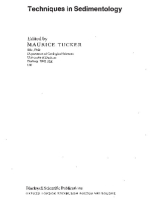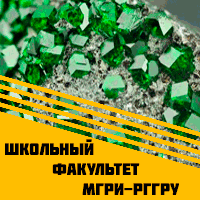Добрый день, Коллеги. Важное сообщение, просьба принять участие. Музей Ферсмана ищет помощь для реставрационных работ в помещении. Подробности по ссылке
Techniques in sedimentology / Методы в седиментологии
The study of sediments and sedimentary rocks has come a long way from the early days Of field observations followed by a cursory examination of samples in the laboratory. Now many sophisticated techniques are applied to data collected in the field and to specimens back in the laboratory. Some of these techniques have been brought in from other branches of the earth sciences, while some have been specifically developed by sedimentologists.
Research on sediments and sedimentary rocks is usually a progressive gathering of information. First, there is the fieldwork, an essential part of any sedimentological project, from which data relating to the conditions and environments Of deposition are obtained. With modern sediments, measurements can be made of the various environmental parameters such as salinity, current velocity and suspended sediment content, and the sediments themselves can be subject to close scrutiny and sampling. With ancient sediments, the identification of facies types and facies associations follows from detailed examination of sedimentary structures, lithologies, fossil content etc., and subsequent laboratory work on representative rocks. After consideration of depositional environment, the larger scale context of the sequence in its sedimentary basin may be sought, necessitating information on the broad palaeogeographical setting, the tectonics of the region, both in terms of synsedimentary and post-sedimentary movements, and the subsurface structure, perhaps with input from seismic sections. With an understanding of a sedimentary rock’s deposition and tectonic history, leading to an appreciation of the rock’s burial history, the diagenetic changes can be studied to throw light on the patterns of cementation and alteration of the original sediment, and on the nature of pore fluids which have moved through the sedimentary sequence. <...>




